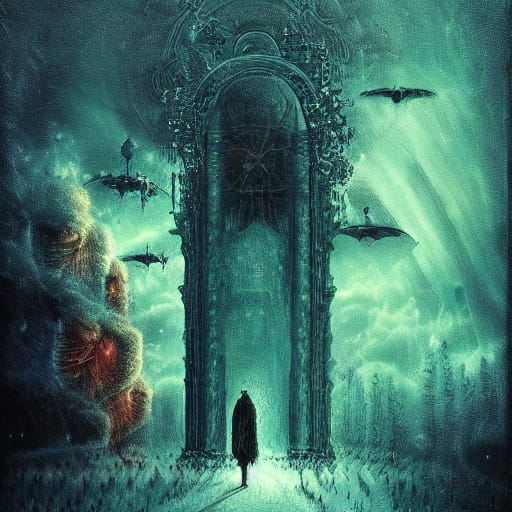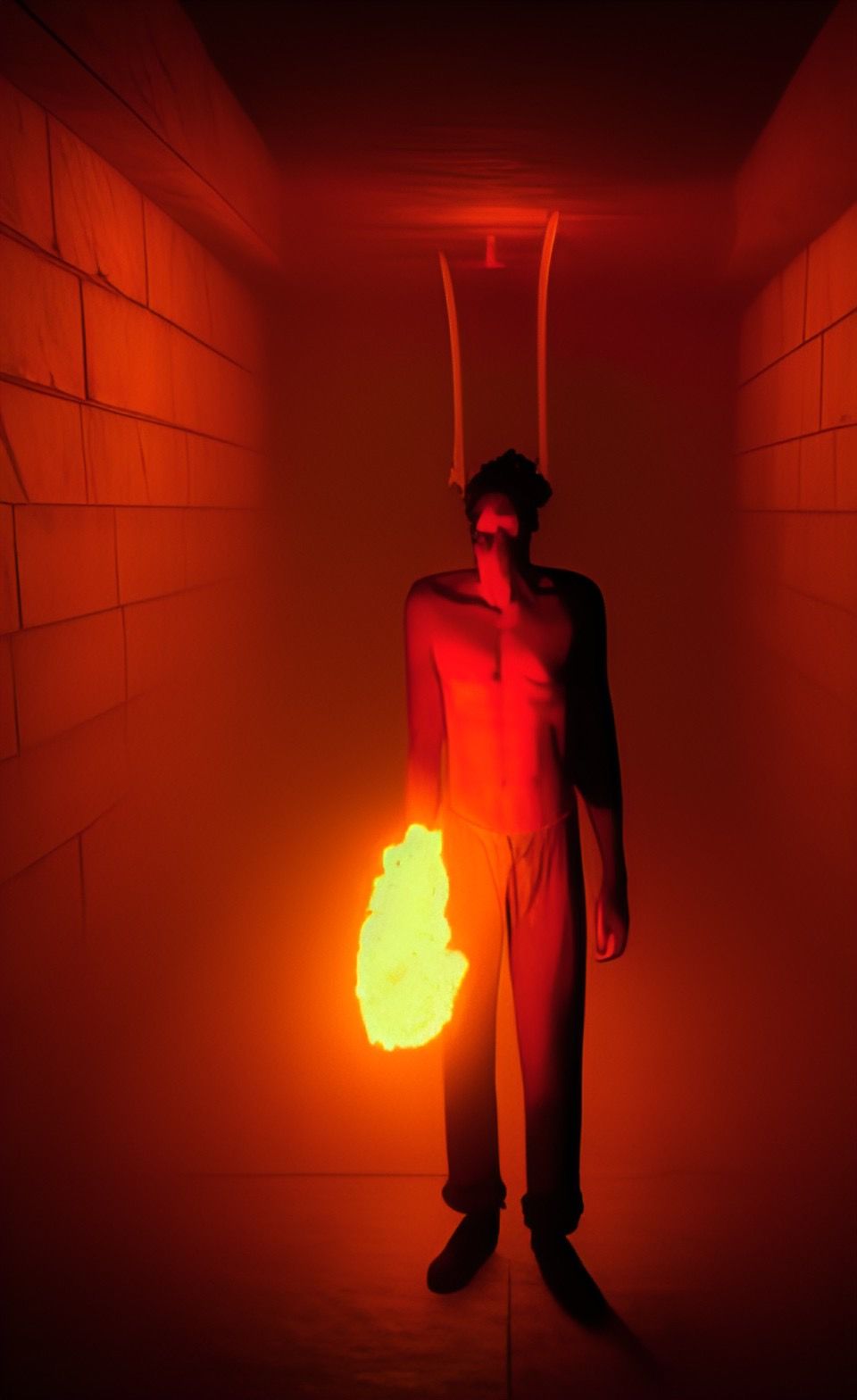Welcome to Meta-Hell: Underworlds for Bad Guys
What would an effective virtual "hell" be like? Let's explore this question.

What would an effective virtual "Hell" be like?
I recently read Surface Detail, by Ian M. Banks. It’s the 9th book in his sci-fi “Culture Series,” but I read it as a stand-alone novel, as per the advice of the Audible Algo-Gods. (They were right.)
I’ll keep spoilers to a minimum, but stop reading now if you want to experience the book without any "surface details."
The main plot of Surface Detail follows a murdered sex slave, digitally reincarnated into a new body and seeking revenge. A subplot follows people who don’t get to "revent" in a new body, but instead are ported to virtual Hells for eternity as punishment for their actions in life.
Some kind of authority (it’s kind of unclear) determines who goes to Heaven—a land of infinite fun—and who gets sent to Hell. If you get chosen for Heaven, you have an alternative option: the choice to return to the real world in a new body, if you were wealthy/lucky/advanced enough to have that tech.
BUT, if you’re marked for Hell, that’s where you go and there is no way back.
In the subplot, two activists, Prin and Chay, take a risky trip to Hell, planning to escape using a secret code they’ve developed to alter the Hell software. After their escape, they hope to tour the world raising awareness about the terrors of Hell. This works for Chay, but Prin gets stuck in Hell and faces more and more terrible things as the Hell overlord, a sadist who volunteers to admin Hell, inflicts intensifying torture on her. The Hells in the novel are literal underworlds, which reside on servers buried in the main evil overlord’s backyard, like dead bodies.
Bank’s virtual Hells primarily contain:
- Demons
- Slavery
- Being forced to murder and torture others
- Physical torture
- Repeated deaths
- Fire/Brimstone
- Psychological torture, including false escapes

Some cultures/worlds in the novel have Hells, and some don’t. Some people think all the Hells should be abolished, and others don’t. This political conflict is one of the main vehicles that drive the book’s plot.
Which side would you be on? Would you support VR Hell or its abolition?
My first instinct was to ban the Hells, but as I sit with the question, it grows murkier.
Reading about these sci-fi penile underworlds also made me wonder what it would look like if we tried to make VR Hells now, with our present tech. And of course, people already have. There is a VR game called Hell, where you roam around in your headset and try to kill demons.
However, while it’s fun to imagine Mark Zuckerberg as Meta-Satan, humans love suffering in video games too much for it to work. Just play The Walking Dead.
Plus, actually inflicting pain in VR without the user’s consent, via a haptic suit or something, would likely constitute assault.

Instead, we get Facebook jail, Instagram prison, and Twitter prison, where the companies/algorithms/committees ban or shadow-ban “bad” users from their sites for misbehaving, a sort of exile. Zuckerberg’s VR version of Facebook, Horizon Worlds, has a similar exile approach. You just can’t go anymore. Bye. Or you’re temporarily suspended.

It would need to get really dark for VR Hells to be effective user punishments. One option is haptic pain suits, which would allow platforms to inflict physical torture on unruly users. Another option, in the absence of haptic suits, is to force users to undergo psychological torture: to rape loved ones, or torture animals, all in an immersive VR environment.
No corporation would do this. Probably. Though if they did, some users would likely accept the punishment and murder the virtual baby in order to regain access to their Instagram account. Some might even enjoy it.
But for real, who would do this twisted stuff? A government…?
What would it look like if we made virtual jails for real prisoners in our real jails?
Since we have far less sympathy for actual murderers and rapists, versus people who violate corporate norms, we can get even more sadistic.

Wouldn’t it be cheaper and safer for society and all involved to just connect prisoners to feeding tubes and catheters, strap them to hospital gurneys or circular treadmills, and bolt on some VR headsets?
VR Jail-Hell would prevent real-life prison networking also because we could have them interact with bots instead of real people. The level of torture could be graded, a torture-scale, controlled by the warden/judge/jury, decreased for good behavior and increased for bad. We could do Clockwork Orange type VR games where criminals re-lived their own crimes but done to themselves. Or we could figure out exactly what individual perpetrators hated the most and make them do that. We could play “Baby Shark” on replay for 1,000s of hours.
And if we invent a digital Heaven that our consciousness went to after bodily death, do we really want to be at the pearly gates with serial killers?
Shouldn’t some people go straight to meta-Hell?
Who decides?
Or is the real virtual Hell/underworld/prison just the liminal state of dataless, empty, blank, endless death?
Is the prospect of non-existence worse than the threat of Hell?

Charlotte Dune is the author of the Psychedelic Love Series. She grew up reading science fiction in a geodesic dome in Appalachia, and loves to travel, throat sing, and cuddle with her schnauzer. More of her work can be found here.
